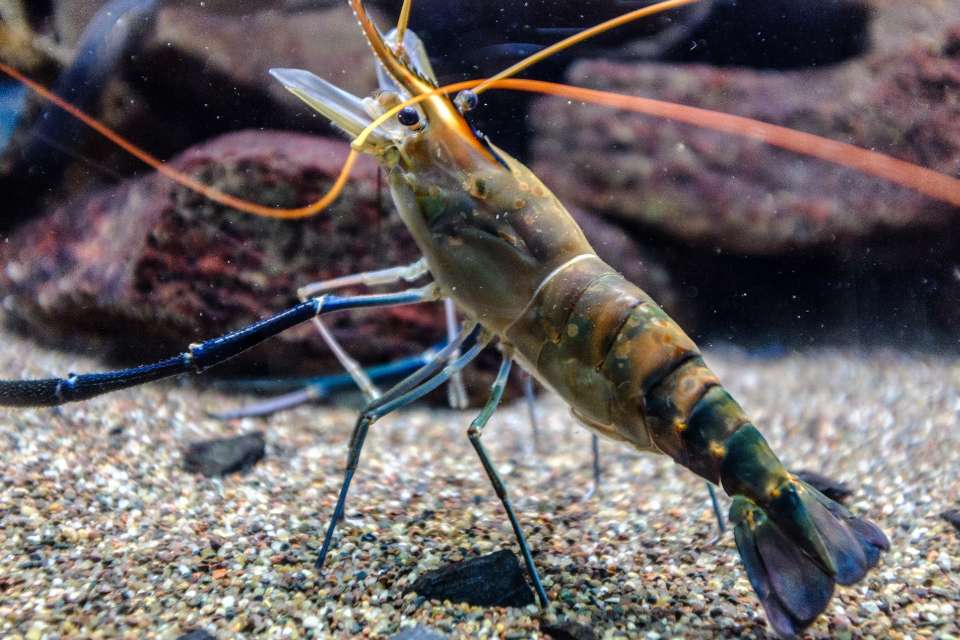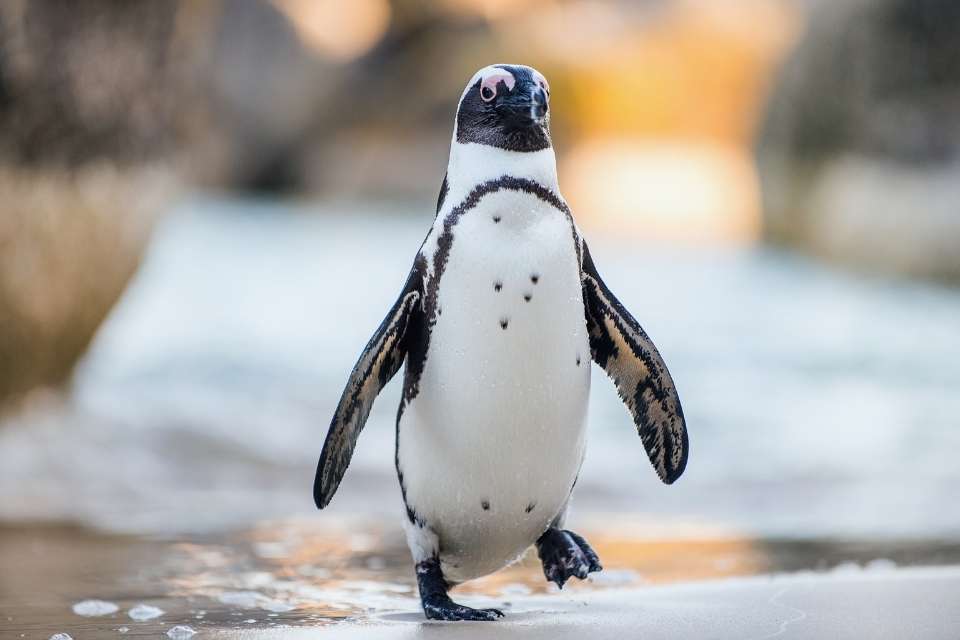When it comes to penguins, their dietary habits are quite diverse and fascinating.
While most species primarily feed on fish, they also have a taste for other marine delicacies, including crustaceans like shrimp. Some penguin species, like the African penguin, have been known to consume shrimp as part of their diet. While most penguins primarily feed on fish, they can also eat shrimp when needed.
Penguins play a crucial role in the marine food chain as predators, contributing to the overall balance of the ecosystem.
Key Takeaways:
- Penguins have a varied diet that includes fish, crustaceans, squid, and sometimes even jellyfish.
- While most penguin species primarily feed on fish, some, like the African penguin, have been known to consume shrimp as well.
- Crustaceans such as krill are a vital food source for many penguins, contributing to their dietary preferences.
- Penguins, including the gentoo, rockhopper, and emperor species, also feed on squid when it becomes seasonally available.
- It is important to support sustainable seafood programs to ensure the availability of fish and crustaceans that penguins rely on.
Penguins’ Fish Diet
Most penguin species have a diet that mainly consists of fish. These remarkable birds, known as piscivores, rely on the abundance of fish in their marine habitats to sustain their energy levels and meet their nutritional requirements.
Penguins consume a variety of small fish, which play a vital role in their diet. Some examples of the nutrient-rich fish commonly found in the penguin diet include anchovies, pilchards, sardines, smelt, herring, and anchovies (yes, anchovies are so important they are worth mentioning twice!).
These fish provide essential fats, proteins, vitamins, and minerals that contribute to the overall health and well-being of penguins.
With their streamlined bodies and efficient swimming skills, penguins are skilled hunters in the water. They use their powerful flippers to propel themselves through the water and catch their prey.
Once a penguin has spotted a school of small fish, they will often swim together in a group, creating a technique known as “herding” to corral the fish into a concentrated area for easier feeding.
What makes fish such a valuable food source for penguins is not only their high nutritional content but also their availability in marine ecosystems.
Fish populations tend to inhabit regions where penguins are commonly found, making them an accessible and preferred choice of prey. The ability to locate and catch these small fish contributes to the penguins’ survival and reproductive success.
“Our studies have shown that fish consumption is a key factor in the overall health and reproductive success of penguins. The nutrient-rich fish in their diet provide the necessary energy for these incredible birds to thrive in their environment.”
- Small fish such as anchovies, pilchards, and sardines provide essential nutrients for penguins.
- Penguins use their streamlined bodies and powerful flippers to catch fish in the water.
- Fish availability in marine ecosystems contributes to penguins’ survival and reproductive success.
Penguins’ Crustacean Diet
In areas where small migratory fish are less abundant, penguins have adapted to eating crustaceans such as krill. Some penguin species, like the Adélie and chinstrap penguins, primarily rely on krill as their main source of food.
Krill is a small, shrimp-like crustacean that forms a significant part of the penguin diet, providing essential nutrients and energy.
However, it’s important to note that not all penguins exclusively feed on krill. The African penguin, for example, can also consume shrimp when necessary.
These crustaceans play a vital role in the penguins’ overall dietary preferences, ensuring they have a diverse range of food sources to sustain their energy levels.
As krill is a key component of the penguin diet, penguins are often considered the top predators in the marine ecosystem. With their streamlined bodies and sharp beaks, they have evolved to efficiently hunt and consume krill, maintaining the delicate balance in the food chain.
Penguins’ ability to thrive on crustaceans showcases their adaptability to different environments and food availability.
Penguins’ Squid Diet
When it comes to their dining preferences, penguins are quite the connoisseurs. While fish and crustaceans make up a substantial part of their diet, these adorable marine birds also have a taste for squid.
Species like the gentoo, rockhopper, and emperor penguins have been observed consuming squid when it becomes seasonally available.
Squid as Penguin Food
Although squid may be lower in calories compared to fish, it still serves as a valuable food source for penguins, particularly during times of abundance. These intelligent birds take full advantage of the seasonal migration of squid to fulfill their dietary requirements.
The Art of Predation
Penguins reveal their prowess as skilled predators when they set their sights on squid. These cephalopods, known for their agility and quick movement, must be no match for the penguins’ stealth and precision in the water.
With their streamlined bodies and powerful flippers, penguins are well-equipped for catching and devouring their squid prey.
“Penguins exhibit remarkable hunting abilities, swiftly closing in on squid as they navigate through the water. It is a stunning display of nature’s wonder.”
The Quest for Seasonal Squid
One of the intriguing aspects of penguins’ relationship with squid is the seasonal nature of their interaction. Penguins patiently await the migration of squid, following their movements across the ocean.
When the time is right, they venture into the depths to feast on these elusive and delicious creatures.
- Squid Consumption by Penguins
- Penguins, such as the gentoo, rockhopper, and emperor species, feed on squid
- Squid serve as a valuable food source for penguins during times of abundance
- The Seasonal Squid Migration
- Penguins take advantage of the periodic movement of squid across the ocean
- They patiently wait for the right time to indulge in this seasonal delicacy
In conclusion, penguins’ squid diet showcases their adaptability and resourcefulness as they navigate the diverse marine ecosystem. Squid may be a temporary meal on their culinary journey, but when it comes to satisfying their dietary needs, penguins always find a way.
Penguins’ Ecological Impact
Penguins are important predators in the marine ecosystem, playing a crucial role in maintaining the balance of the food chain. Their feeding habits and interactions with other species have a significant impact on the overall health and biodiversity of the marine environment.
As predators, penguins contribute to regulating the populations of their prey, such as fish, crustaceans, and squid. By consuming these organisms, penguins help control their numbers and prevent overpopulation, which can have detrimental effects on the marine ecosystem.
However, human activities, particularly overfishing, can disrupt the natural balance and have a profound impact on penguins and the marine ecosystem as a whole.
Overfishing reduces the availability of fish, a primary food source for many penguin species. As a result, penguins may have to swim longer distances and consume more food to meet their nutritional needs.
This increased effort to find food can be detrimental to penguins, especially during the breeding season. Parent penguins may have to spend more time searching for food, leaving their chicks vulnerable to predation or starvation.
In some cases, penguins may even abandon their nests and chicks due to the lack of sufficient food resources.
The decline in fish populations due to overfishing also puts endangered penguin species at an increased risk. With fewer food options available, these species face challenges in sustaining their populations and may be pushed further towards the brink of extinction.
It is imperative that we take action to protect penguins and their habitats. Implementing sustainable fishing practices and establishing marine protected areas can help restore balance to the marine ecosystem and ensure the long-term survival of these iconic and vulnerable species.
Conclusion
Penguins, with their diverse diet including fish, crustaceans, squid, and jellyfish, play a vital role in the marine food chain. They are not limited to one specific type of food but have adapted to consuming various marine creatures based on their availability and nutritional needs.
It is crucial to support sustainable seafood programs to ensure the availability of fish and crustaceans that penguins rely on. By promoting responsible fishing practices, we can help maintain a healthy ecosystem that supports penguin populations and other marine species.
Conservation efforts are of utmost importance in protecting and preserving penguin species and their habitats. The decline in fish populations, caused by overfishing and human activities, threatens the delicate balance of the marine food chain and directly impacts penguins’ ability to find adequate food for their survival.
It is our responsibility to take action and work towards a sustainable future that safeguards these remarkable creatures.
FAQ
Do penguins eat shrimp?
Yes, some penguin species, like the African penguin, have been known to consume shrimp as part of their diet. While most penguins primarily feed on fish, they can also eat shrimp when needed.
What do penguins eat?
Penguins have a diverse diet that includes fish, crustaceans, squid, and occasionally jellyfish. Most species primarily feed on fish, but some can also consume other marine organisms depending on their habitat and availability of food.
What kind of fish do penguins eat?
Penguins consume various small fish such as anchovies, pilchards, sardines, smelt, herring, and more. These fish are nutrient-rich and provide the necessary energy and nutrients for penguins to thrive.
Do penguins eat krill?
Yes, certain penguin species, like the Adélie and chinstrap penguins, primarily rely on krill as a food source. Krill is a type of crustacean and is an essential component of their diet.
Do penguins eat squid?
Penguins, including the gentoo, rockhopper, and emperor species, feed on squid when it becomes seasonally available. Despite being low in calories compared to fish, squid can provide a valuable food source for penguins, especially during times of abundance.
Do penguins play a role in the marine food chain?
Yes, penguins play a crucial role as predators in the marine ecosystem. They are part of the food chain, consuming fish, crustaceans, and other marine organisms, and their presence helps maintain the balance of the ecosystem.
How does overfishing impact penguins?
Overfishing can have a significant impact on penguins’ dietary preferences and their ability to find enough food. When fish populations decline due to overfishing, penguins have to swim farther and consume more food to meet their nutritional needs, which can lead to the abandonment of chicks and a decline in endangered penguin populations.
What can be done to protect penguins and their habitats?
It is important to support sustainable seafood programs and conservation efforts to ensure the availability of fish, crustaceans, and other marine organisms that penguins rely on.
By implementing sustainable fishing practices and protecting penguin habitats, we can help preserve and protect penguin species for future generations.


